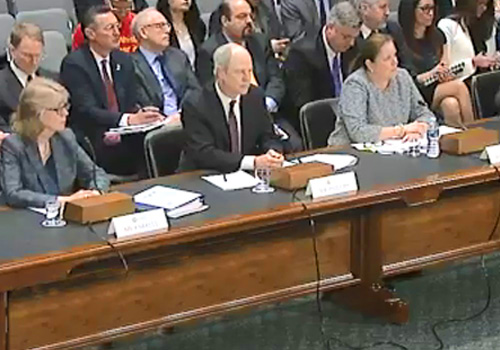Yesterday it was my honor to join with distinguished industry and government experts testifying on Capitol Hill.
The setting: a hearing of the Senate Select Committee on Intelligence.
The topic: the ongoing security clearance backlog, an issue that has grown to epic proportions over the last three years, with significant and potentially dire impact.
As a direct result of this backlog, the government faces a shortfall of available contracting experts essential to supporting many of our nation’s most important and sensitive missions.
The key points we shared with U.S. senators on the committee:
-
There are now 700,000 people waiting for security clearances.
-
Since 2014 the time it takes to obtain clearances has doubled – in many cases to nearly 600 days.
-
Some 10,000 contract positions for the Intelligence Community remain unfilled.
-
Highly qualified experts get so frustrated with the delays that they give up and take private sector jobs.
-
Sometimes a contractor who already has a valid security clearance is forced to re-enter the approval process when shifting to a new contract within the same agency.
All of these facts are documented by the experience of those of us who work in government contracting to support national and homeland security, and backed by independent studies from the Government Accountability Office.
All who testified, and all who listened, were in agreement on the scale of the problem. I’m pleased to report that we received a positive response from Chairman Senator Richard Burr, Vice Chairman Mark Warner, and the committee as a whole.
They want action – just as we do. We in industry came prepared, with a plan. Here are our specific recommendations to resolve the security clearance backlog:
-
Increase funding to help accelerate processing and reduce the current backlog now.
-
Prioritize cases so that agencies have the right “cleared” experts for high impact missions.
-
Implement continuous evaluation to establish trustworthiness, and information sharing among contractors and government agencies to weed out insider threats.
-
Enable reciprocity and portability so that qualified individuals with existing clearances can be put to work without delay.
-
Reinstitute common sense timelines set by the Intelligence Reform and Terrorism Prevention Act (IRTPA).
Obviously, making changes of this magnitude is no simple matter. That said, we are off to a good start with Congressional leaders who understand the problem and agree that taking these essential measures to safeguard national security cannot wait.



